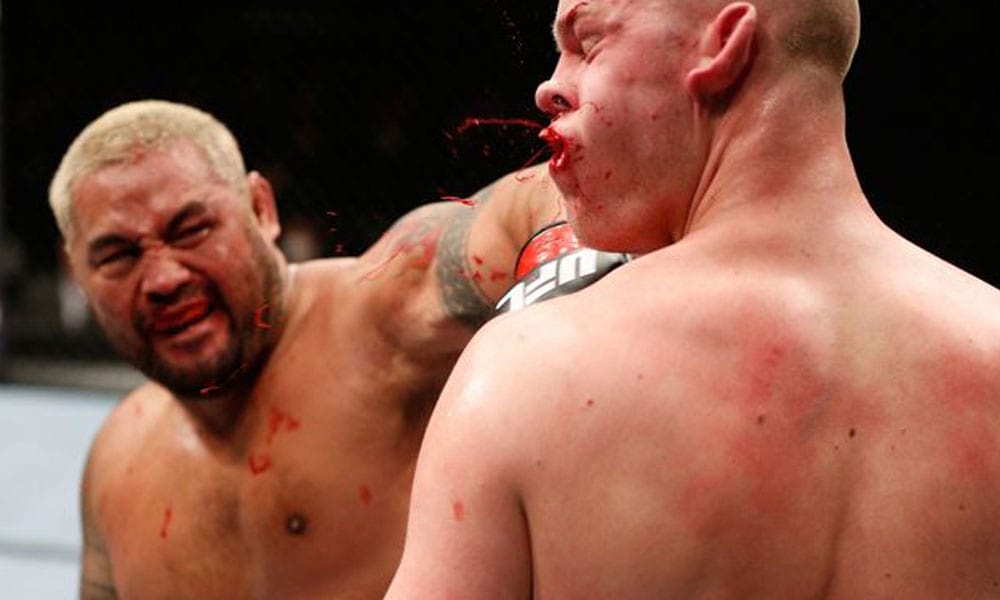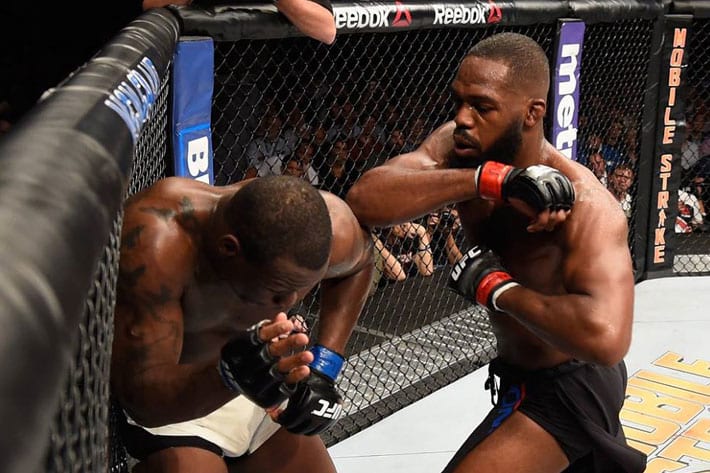
Issue 215
March 2025
Before championship belts were on the line, the world's greatest fighters were locked in their own battles. Isaac Barnett delves into the gritty and inspiring MMA origin stories that forged these warriors into the legends they are today.
ALEXANDER VOLKANOVSKI – WRESTLING GREATNESS
Alexander Volkanovski was born in Wollongong, Australia, to a Macedonian father and a Greek mother. His childhood wasn’t marked by hardship, but it wasn’t one of excess either, just a stable, working-class upbringing that gave him access to a solid education and the freedom to explore his athletic potential. As a kid, he started with soccer before discovering wrestling at 12, where he quickly showed signs of something special. He captured two national titles and developed a grappling base that still anchors his counter-wrestling style in the Octagon today. But just as the path to Olympic dreams seemed clear, he veered left. At 14, Volkanovski swapped the singlet for a rugby kit, shifting entirely from wrestling to the bruising world of rugby league. He played as a front rower and bulked up accordingly, tipping the scales at a massive 97 kilograms, some 31 kilos heavier than the featherweight king we know today. He thrived in rugby, earning Player of the Season in 2010 with the Warilla Gorillas in the Group 7 Rugby League and sealing the Premier League title the following year with a Man of the Match performance in the final. But during an off-season, everything changed. At 22, Volkanovski walked into a martial arts gym to keep fit and never left. He was hooked. After one final season of rugby, he realized his true calling wasn’t charging through defensive lines. It was trading leather inside the cage. He racked up a string of first-round amateur finishes and made the leap to pro competition.
In an interview with SBS, he said:
“A lot of people thought I was mad when I decided to switch to MMA because I used to be pretty good at rugby league. I’ve always loved MMA, wrestling, and combat sports, so I decided to take on MMA as my main sport. I’m in the UFC, so it’s crazy how things work.”
Volkanovski's amateur career barely lasted longer than the intros.
“I had four amateur fights, and all four didn’t add up to one round. I only had three minutes of amateur experience before I turned professional. I started MMA a lot later than I would have liked, so I wanted to go professional as quickly as possible to earn money while I did the sport.”
With his trademark drive and precision, he reinvented himself once more, this time as ‘The Great,’ a moniker steeped in family pride.
“I was originally the ‘Hulk,’ but then I changed it to ‘The Great’ because of my dad and his Macedonian side.”
It was a fitting name for a man destined to rule. From late-blooming wrestler to rugby enforcer to MMA kingpin, Volkanovski didn’t just earn greatness, he forged it.

MARK HUNT – CARRYING DEMONS
Mark Hunt was born on March 23, 1974, in Auckland, New Zealand, into a Samoan family whose culture instilled deep values of strength, family, and respect. But his upbringing was far from the warm embrace often associated with Samoan heritage. Hunt’s early life was brutally hard. His home was a place of fear, not comfort, and his childhood was marked by horrific verbal and physical abuse. His father would beat him and his brothers almost daily, and he also raped his sister nearly every night until she was 18 years old.
In his autobiography, Born to Fight, Hunt explained the worst of it.
"My old man was ruthless. He terrorized us. He'd start with the mental games before he even found the implements to hit us with. He once tied me up in the garage with my hands above my head and beat me with a frigging broom handle."
This trauma carved into Hunt a deep well of pain that bled into every aspect of his youth. He became a street-fighting bully, carrying his rage like armor, lashing out because there was nowhere else for it to go. At 16, that anger led him down a dark path. He was soon stealing cars, fighting in the streets, and ended up in Waikeria prison for nine months. He returned not long after for assault. Then came a pivotal moment. One night, outside a nightclub, fists flew as usual—until someone pulled him from the chaos.
"I was a cheap criminal; I did many wrongs, I admit. Of course, if I could tell each person I'm sorry, I would."
"I was fighting everywhere. I fought at schools, I fought in bars, I fought in the street, but it was one day, fighting out the front of a club, where someone noticed, and my life started to take a nice little turn. The police turned up on the scene. While the street was all flying fists and shouting, a hand reached over and pulled me back into the club.
This guy’s name was Sam Marsters, a bouncer. He was also a fighter, a trainer, and a bit of a local entrepreneur. So, you like a scrap, son?' he asked. 'You want a real fight then?' He said the words 'Muay Thai,' but it didn’t mean anything to me. He said the word ‘kickboxing,’ which I did understand. Then he said the word 'Thursday'.
It took me nearly another decade after that brawl to realize how significant it was, but isn’t that how real life works? It’s only ever looking backward that you can see whether a road you’ve taken was a road to fortune or ruin."
That Thursday changed everything. Hunt began training and quickly proved that his rage could be redirected into something lethal, something controlled. With terrifying knockout power and an unbreakable chin, he rose to stardom in K-1, earning a reputation as one of the hardest hitters combat sports has ever seen. His fists carried years of pain, but now they also carried purpose.

JON JONES - THE GREATEST
He was born into a devout Christian household on July 19, 1987, in Rochester, New York. His father, Arthur Jones, was a pastor at Mount Sinai Church, and he raised his children with faith at the center of everything. Arthur wanted his sons to follow in his footsteps and stressed the importance of following God's teachings, but he acknowledged that he also wanted his sons to be who they wanted to be.
Speaking to ESPN, Jones had nothing but praise for him.
“My Dad's a great guy. Growing up, he really taught us the importance of faith. He was always a little harder on me. We looked a lot alike, and we had the same personality, so we would butch heads a lot. He was so passionate about us and wanted to see us succeed in sports.”
Jon’s athletic potential was apparent from the start. His brothers, Arthur and Chandler, both reached the NFL and earned Super Bowl rings. Jon tried to follow their cleat marks but found that football wasn’t his path. At Union-Endicott High School, he discovered wrestling. And with it, his true calling. As a young man, Jones’s rise was forged in adversity. His younger sister tragically died from brain cancer before her 18th birthday, a loss that devastated the Jones family.
“To have everything taken away from her, you know, her hair, beauty, everything, it was hard to see and witness that happen to her. She was a light and my only sister. It was tough for me, for all of us.”
Through pain came purpose. Wrestling gave him an outlet to cope, and he used every loss as fuel. He eventually became a state champion, which earned him a scholarship to Iowa Central Community College. He won an NJCAA national wrestling title there, but just as his collegiate career was taking off, life threw him another curve. His girlfriend became pregnant with their first child, and he dropped out to support his growing family. Then fate came knocking, on Twitter, no less.
“Suddenly, I have a kid on the way. I'm a dropout. I'm a dropout, and I got a message on Twitter from a guy I'd never met. His cousin had an MMA gym about 45 minutes away. I didn't have a car but went for my first practice that following Monday. I remember my first practice and the guys asking me where I'd been training before I came to their gym, and I told them that I'd never been in a fight before. Four months later, I was in the UFC, and that was that.”
From zero experience to the Octagon in four months, Jones has dominated MMA for decades. What followed was a reign of dominance and creativity that would forever alter the shape of the sport.










